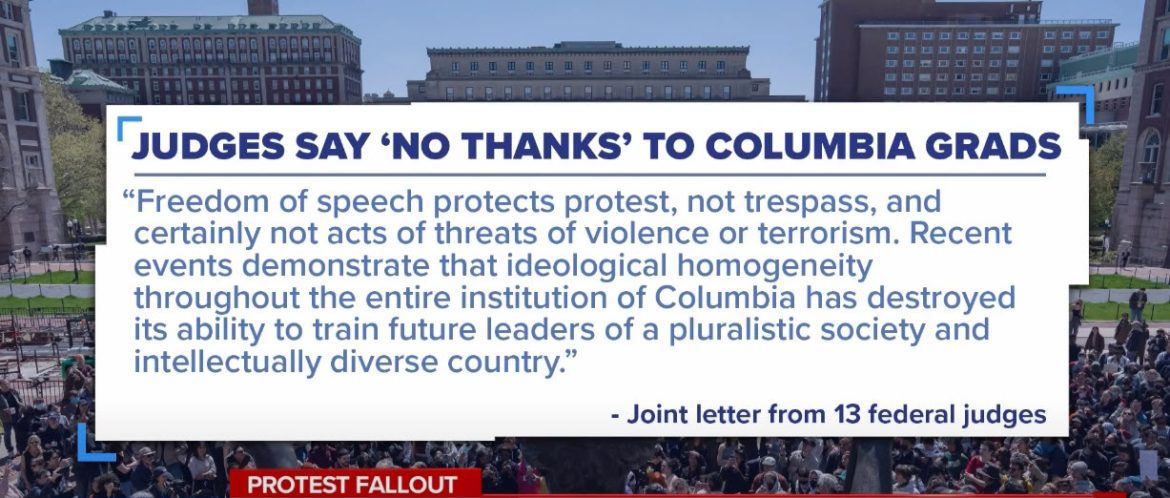A group of thirteen U.S. federal judges have declared that they will no longer hire students or graduates from Columbia University’s Law School. This decision comes in response to the university’s handling of recent anti-Israel protests on campus. The judges, all appointed by former President Donald Trump, have expressed a loss of confidence in the institution, labeling it an “incubator of bigotry.”
The judges’ discontent centers around what they perceive as Columbia’s inadequate response to the protests, which they believe fosters an environment of intolerance and bias. In a letter to the university, obtained by Reuters, the judges articulated their concerns and provided a set of guidelines they suggest Columbia could follow to restore its “once distinguished” reputation.
This blacklist from such a high number of federal judges could have significant implications for Columbia Law School students entering the job market, potentially hindering their opportunities within the federal judiciary. The move has sparked a broader conversation about the balance universities must strike between upholding free speech and ensuring a non-hostile environment for all students.
Columbia University has yet to respond publicly to the letter or the judges’ decision to blacklist their students. The legal community and educational institutions are closely watching this situation, as it may influence future interactions between academia and the judiciary.



